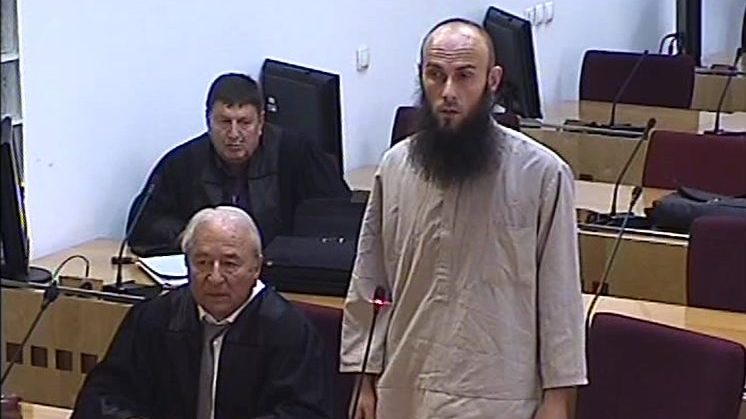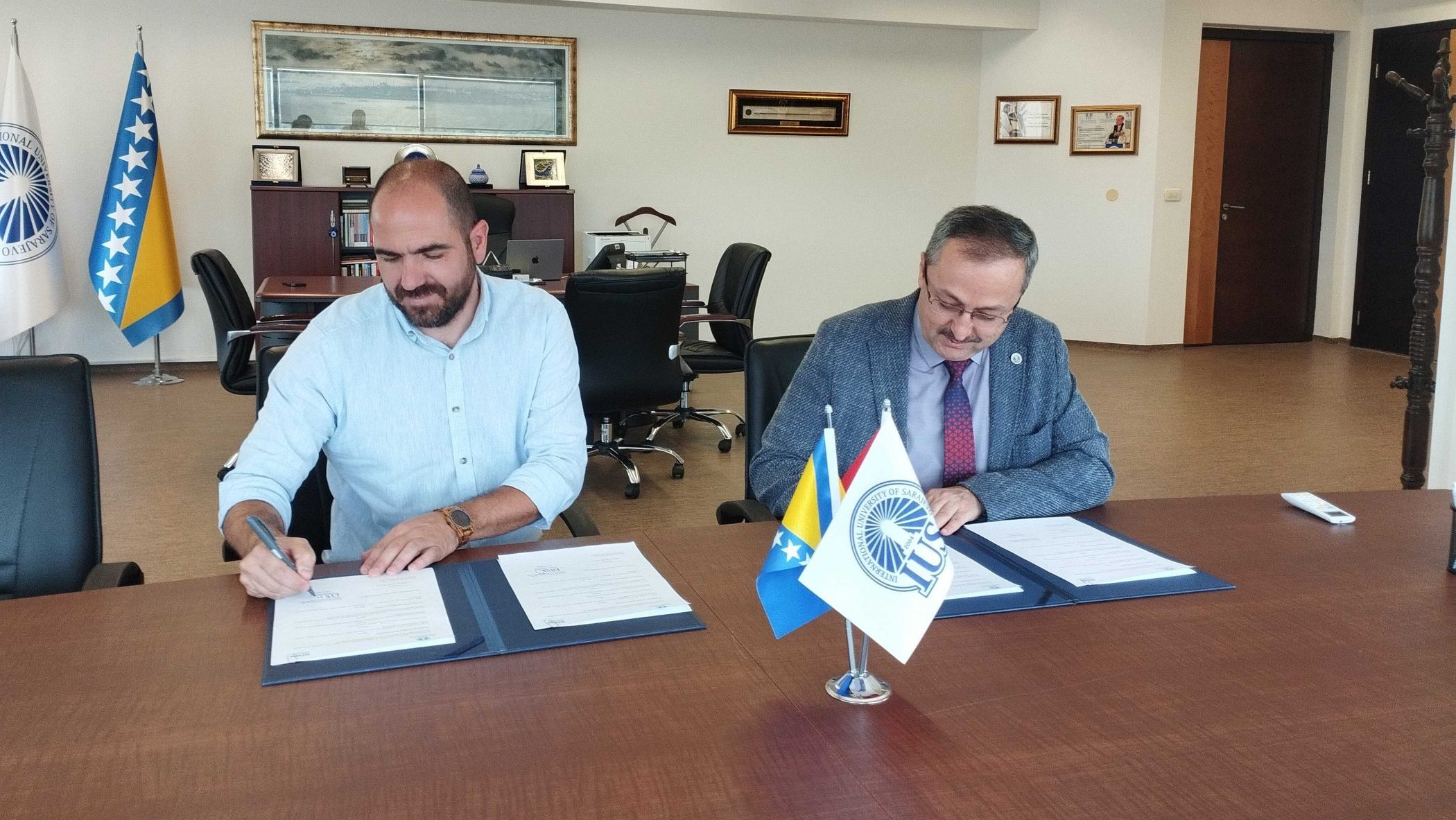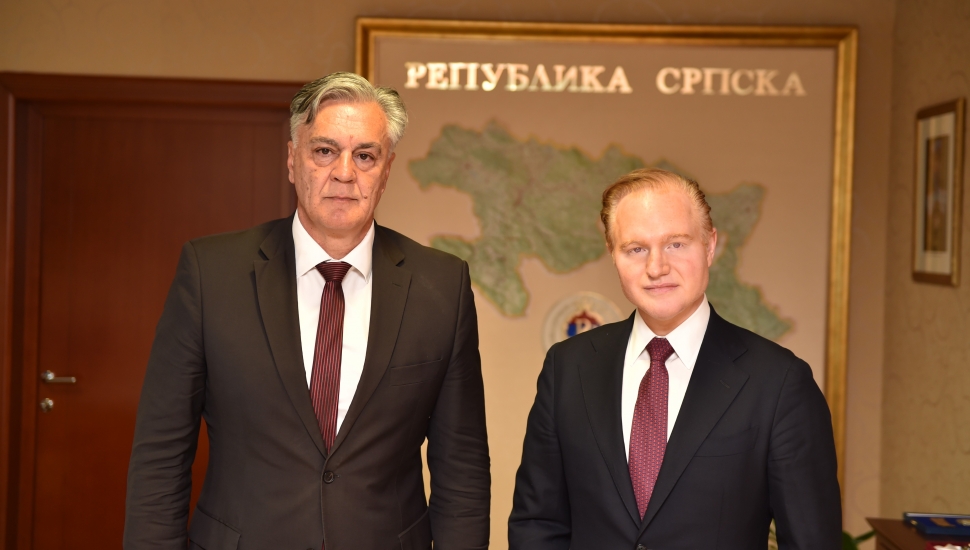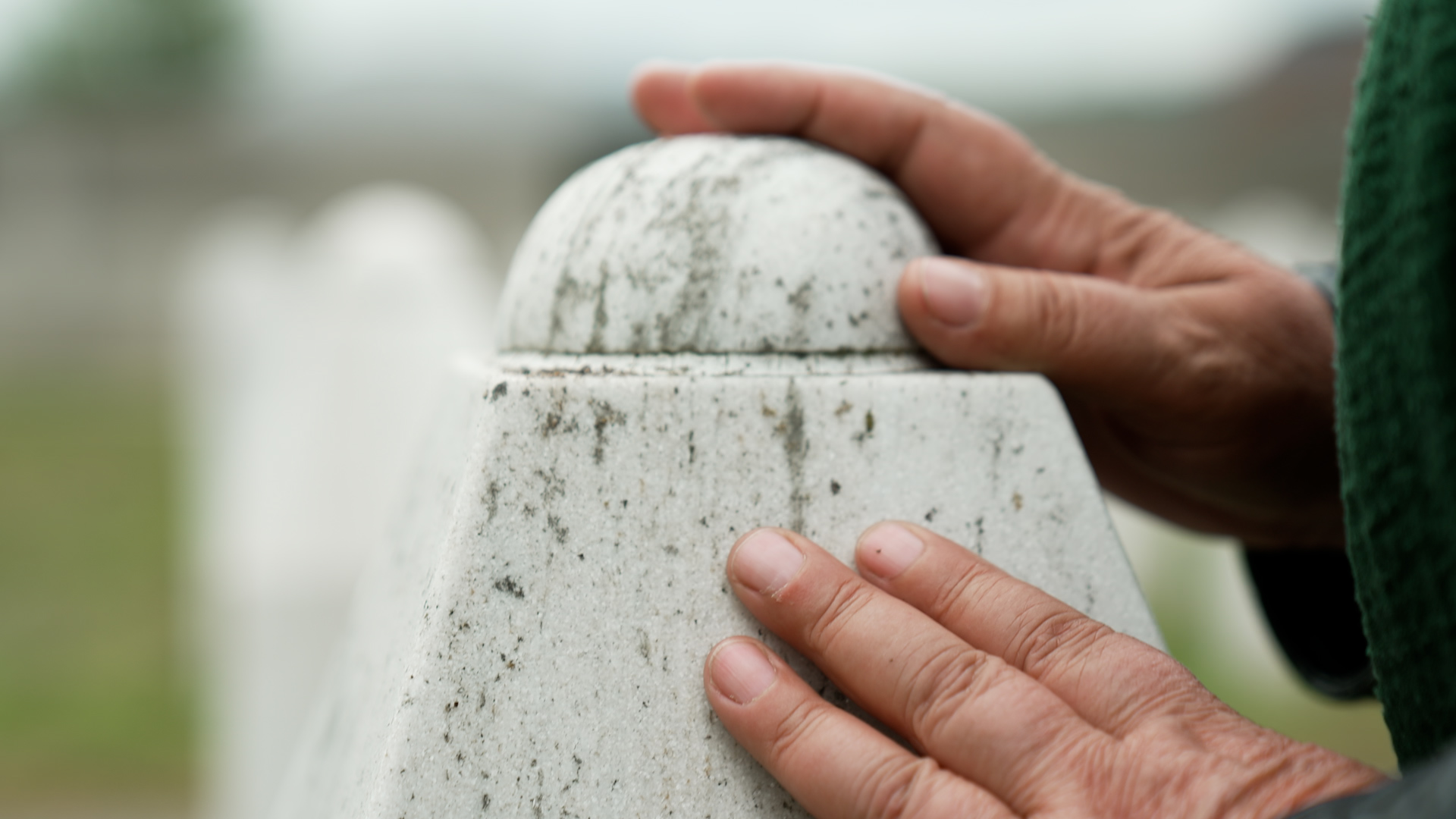This post is also available in: Bosnian
People convicted of illicit drug trafficking, automobile theft or tax evasion in Bosnia and Herzegovina often keep their illegally-acquired real estate or financial assets because the state prosecution does not always investigate the origin of their property and because of the complexities of the sequestration system if confiscation is ordered.
Under the law, convicts can also pay a fine to avoid serving a jail term, although judicial institutions still find it hard to confiscate their illegally-acquired assets. The same goes for those who do serve their sentences.
From 2010 to the end of 2015, the Bosnian state court handed down 51 second-instance verdicts related to organised crime, ordering those convicted to pay nearly 5,400,000 Bosnian marks (over 2,760,000 euros) to the treasury.
But the available data suggests that only 350,000 Bosnian marks (179,000 euros) of the total amount has been paid so far.
There is no state-level law to say how confiscated property obtained by criminal means should be managed by the authorities.
The Bosnian Ministry of Justice’s working plan for 2016 foresees the preparation of a draft law on this issue, while the State Strategy for the Fight against Organised Crime 2014-2016 says that it is necessary to “improve the practices for confiscating illegally obtained property” in criminal proceedings.
Cash sources go unchecked
In its verdicts so far, the Bosnian state court has mostly ordered convicts to return the proceeds of their crimes by paying a certain amount of money into a treasury bank account after the ruling.
From 2010 to the end of 2015, judges working at the Section for Crime and Corruption at the Bosnian state court ordered convicts and companies to pay nearly 15,500,000 Bosnian marks (some 7,900,000 euros), data published by the Journal website indicates. But only around 614,000 Bosniak marks (314,000 euros) – less than four per cent of the total – has been paid.
Josip Raso from Kiseljak, who was convicted of involvement in organised crime, is an example of someone who paid a fine so he did not have to serve his jail term and avoided paying back what he earned from his criminal activities.
Raso was arrested in 2012 for car theft and extortion. He admitted his guilt and after having reached a plea bargain with the state prosecution, he was sentenced to one year in prison.
According to the verdict, Raso made a deal with a group of people to deliver stolen vehicles to him. He paid them ten per cent of the market value of the vehicles and then resold the vehicle parts at a junkyard.
The verdict said that the exact number of automobiles involved has not been determined, but there were seven at least. Raso was also convicted of extortion for telling a woman to pay a certain amount of money to get her stolen car back.
Raso agreed with the prosecutor to pay 3,000 Bosnian marks (over 1,500 euros) which he earned through criminal activities to the treasury account. After having seen the evidence however, the judge determined that he mad e at least twice as much money, so she ordered him to pay 7,000 Bosnian marks (over 3,500 euros).
Raso refused to pay that amount, but to avoid going to prison, he managed to pay a fine of 18,700 Bosnian marks (about 9,500 euros).
Judge Vildana Helic said she believes that issues with the retrieval of illegally-obtained assets could sometimes be resolved simply. When it comes to guilt admission agreements, Helic said that a possible solution would be for prosecutors to agree with defendants to send the agreements for review only after they have paid the money they owe.
Although it was determined in last year that Raso, an unemployed father of two, had no possessions that could be sold, the Court of Bosnia and Herzegovina has not given up on retrieving the money from him.
BIRN was not able to contact Raso, and his lawyer Zlatko Sirco did not want to answer questions.
Helic said meanwhile the law does not stipulate that the court should establish the origin of the money used for paying a fine to replace a jail term.
“The court does not care where he got the money from. It would be very important, in cases where an imprisonment sentence is replaced with fine, to determine the origin of the money, in order to make sure it was acquired in a legal way and not allow the paying of fines with illegally-acquired money,” she said.
Disputes between courts
In cases like Raso’s, in which no money is found during the arrest and convicts fail to pay what they owe after the verdict, the Court of Bosnia and Herzegovina attempts to confiscate or sell possessions and property via municipal and basic courts, or deduct part of convicts’ salaries or retirement benefits.
If this is not possible, the process is discontinued. Data indicates that retrieval attempts are often discontinued because convicts do not possess any property that could be confiscated or sold.
Lawyers Vasvija Vidovic and Fahrija Karkin said that in cases in which the two of them have been involved, prosecutors usually file requests for confiscation of illegally-acquired assets.
“I have been involved in several cases dealing with organised crime before the Court of Bosnia and Herzegovina, in which such decisions have been made. In some of them, large amounts of money have been collected,” Karkin said.
However, Karkin claimed that lawyers are not informed about what happens after second-instance verdicts, or whether anything is actually confiscated or not.
Mirza Jusufovic, a judge at the Bosnian state court, wrote in a court practices bulletin last year that there were no conditions for systematically and efficiently confiscating assets.
The Court of Bosnia and Herzegovina used to submit second-instance verdicts to the State Lawyer’s Office of Bosnia and Herzegovina, which then gathered information on convicts’ bank accounts and property. After that, it sent execution warrants to the courts.
In one of its reports, the State Lawyer’s Office of Bosnia and Herzegovina said that in some cases, convicts transfer their properties to other people, such as relatives or friends, to avoid confiscation.
It also said that because of the complexity of Bosnia’s administrative system, some institutions that should provide information to others do not do so in time, and that sometimes prosecutors fail to probe illegally-acquired assets during trials.
However, practices have changed, and the Court of Bosnia and Herzegovina now carries out these procedures independently by sending warrants to municipal and basic courts.
However, in April this year, relations between the Sarajevo Municipal Court and Court of Bosnia and Herzegovina became complicated.
Meddzida Kreso, the president of the state court, sent letters to the Council of Ministers, Ministry of Justice and High Judicial and Prosecutorial Council (HJPC), indicating that the Court had referred 31 cases, whose total value was about 500,000 BAM, to the Municipal Court Sarajevo requesting it to implement them.
Kreso said the cases were linked to unlawful material gains, fines and court costs.
While saying she was aware that the Municipal Court Sarajevo had its own work to do, she said that it refused to implement the state court’s requests.
In response to these claims, Janja Jovanovic, the president of the Municipal Court Sarajevo, said that the Bosnian court judges were sending them cases which were unfinished.
“For instance, proposals for selling real estate or vehicles, as well as rendering decisions on the adjudication and settlement of debts, do not fall under the competency of our court, but of the state judges which handled the cases,” Jovanovic said.
She also responded to Kreso by saying that court executors at the Municipal Court would always offer help to the Bosnian state court as long as the matter was under its jurisdiction.
Kreso then made a proposal that the Bosnian state court should get its own court executors to handle such cases, instead of referring them to lower-level courts.
Bank account issues
BIRN’s analysis of the cases handled by the Bosnian state court so far indicates that funds can only be efficiently retrieved if convicts themselves decide to make payments to the treasury account, if money is found during the arrests or if their bank accounts are frozen in time.
Zijad Turkovic was sentenced to 40 years in prison for organised crime and ordered to pay the costs of the trial and 307,000 Bosnian marks (about 157,000 euros), representing the sums he acquired illegally.
He was also ordered to hand over his two cars, a Mercedes and Audi, and an apartment on Mount Vlasic, while the court approved the permanent confiscation of around 48,000 Bosnian marks (over 24,500 euros) found on his wife’s account when he was arrested.
The money on his wife’s account was seized and the state court initiated a processes to confiscate the apartment on Mount Vlasic. In April 2016, it submitted a request to the Land Registry with the Municipal Court in Travnik to transfer the apartment’s ownership rights. It has still not received any feedback.
However, Turkovic refused to pay the 307,000 Bosnian marks to the treasury account. The Court of Bosnia and Herzegovina announced it would start the process of retrieving the money and BIRN has learned that the ownership of Turkovic’s family house in Sarajevo has been frozen in order to ensure the money is received.
The Turkovic case illustrates how difficult it can be to retrieve funds and property from criminals after they are convicted.
However, the problem of how to deal with confiscated property could be resolved by forming a state-level agency.
A working group for implementation of the state strategy for the fight against organised crime said earlier this year that it was planned that a law which envisages the establishment of such an agency would be adopted by the end of 2016.
When asked to assess past practices regarding the confiscation of illegally-acquired property, the working group said that the judiciary does its best, but “there is always room for improvement”.
Some convicts who have enriched themselves through their illegal activities have not been investigated by prosecutors despite a legal obligation to do so, said lawyer Mirna Delalic.
“An obligation to conduct a comprehensive investigation implies an obligation to find evidence that would help determine the amount of eventual material gain obtained through criminal acts,” Delalic said.
The case of Mato and Blago Simic, who were convicted of drug trafficking, is one such example. The verdict indicated that the Simic brothers sold a large quantity of drugs in Croatia by getting between 5,000 and 8,000 Bosnian marks (around 2,500 to 4,000 euros) via intermediaries for each delivery. The quantity of drugs involved was not determined at the trial.
The Bosnian state prosecution said it could not talk about the reasons why the issue of the Simic brothers enriching themselves illegally was not discussed at their trial.
“Confiscation of unlawful material gains can only be requested if it is determined that the property originated from the commission of a crime, which is a rather complex process,” the prosecution said.
When asked if this was because the prosecution lacks resources, it responded by saying that “better resources would help” in its work.
Judge Helic said there was also a lack of experts trained in financial investigations in order to present findings at trials.
During a recent symposium for prosecutors and judges, Diana Kajmakovic, a prosecutor with the state prosecution, said the inability to find financial resources represented a problem.
“It is easy in Italy or European Union countries, for instance, because money transfers are done through banks, so you can follow the flow by monitoring bank accounts. However, in Bosnia and Herzegovina, money is buried in yards or kept in some secret place inside a house,” Kajmakovic said.
Lawyer Vidovic and judge Branko Peric said they believe that judges can do nothing unless a prosecutor offers evidence, confirming that real estate, money or other valuables have been acquired through criminal activity.
“As a rule, judges should not present evidence and perform the role of a prosecutor in the line of their duty. By doing so, they would bring their independence into question. Why should a judge help a prosecutor? Prosecutors are here to protect the interests of the state,” Peric said in a previous interview with BIRN.
He said that some prosecutors are not interested in following through cases they handle to their conclusion.
“They deal with a case until a point of its completion, when they expect a verdict of conviction to be pronounced, but they avoid becoming involved in the case in a broader sense, in financial investigations and certain other things. Therefore they deliberately avoid things in order to conclude the case as soon as possible and have good statistical indicators,” Peric said.
Vidovic argued that this represents a job half-done by prosecutors. “If someone filed a report against them, it would certainly be considered an omission in their work,” she said.
Helic said she believes that the confiscation of illegally-acquired property represents a key step towards ensuring stop being profitable.
“Punishment is not important to me. What is important is to see someone being deprived of property that was obtained in an illegal manner. Criminal activities should not be profitable, but they currently are profitable in Bosnia and Herzegovina,” she said.




